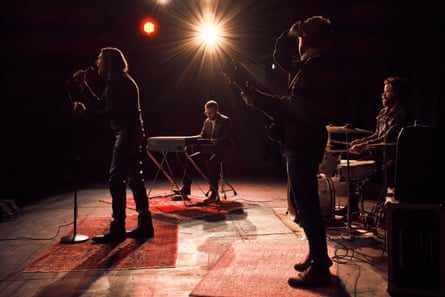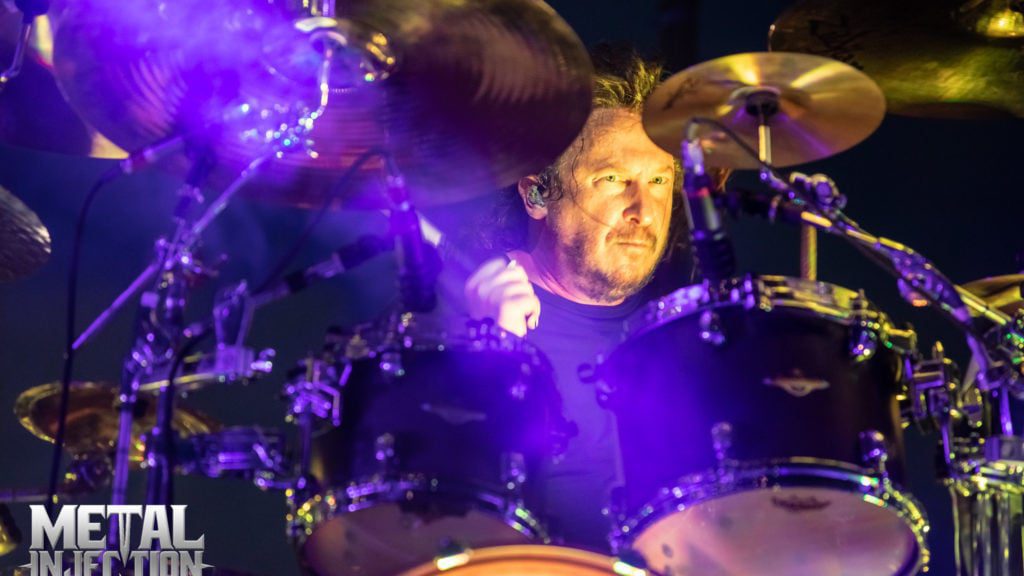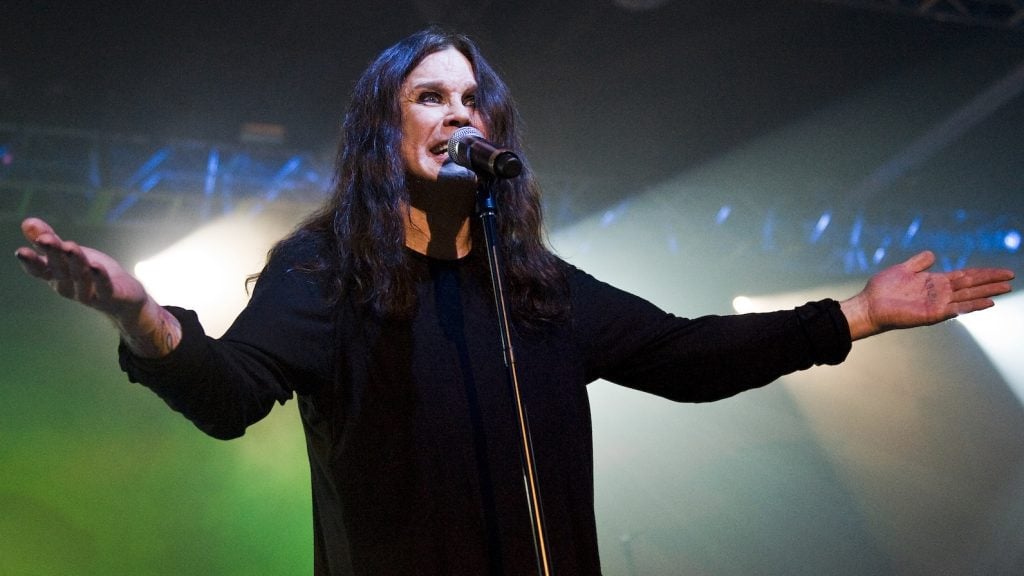
They’re among the best in British indie. So why have Field Music become a Doors cover band?
For years, Field Music playfully toyed with the idea of forming a hybrid cover band called AC/BGs, featuring one set of AC/DC songs done in a Saturday Night Fever-style and one set of rock-heavy Bee Gees numbers. “These things are a joke until they stop being a joke,” says David Brewis, one half of the Sunderland art-pop band.
Another idea made it beyond a tour bus gag to become their new side hustle: a Doors tribute band called the Fire Doors. When the band announced it on Facebook last month, they received critical questions asking: why? The band’s response was a piercingly honest multi-page statement. Brewis wrote of Field Music’s sincere love of the band, the high levels of skill required to do such a job proficiently – and how doing one tribute gig a month could help their “dire finances”, having accepted that after nine albums, they have “quietly passed into contemporary irrelevance”. He had an emphatic signoff: “Why the hell should I be embarrassed?”
They were flooded with hundreds of comments of support from other professional musicians in similar scenarios. “Our situation is not unusual at all,” says Brewis. “There are tons of musicians who subsidise work by playing in some kind of entertainment band but mostly don’t talk about it because it’s seen as naff or embarrassing. It’s like a dirty secret. But me saying it out loud, because I have no shame, illustrated something unspoken.”
It’s been 20 years since Field Music’s self-titled debut album was released, a milestone they will be celebrating with a live run in November. In that time, they’ve toured the world, released three Top 40 albums, have Spotify streams in the millions, found a fan in Prince and mostly made a living from their music. To many, Field Music are the definition of a successful band. “To have kept going without ever compromising is incredible,” concedes Brewis. “We’ve never had a hit, so we’ve never had to conform to anyone’s expectations. We’ve continued to make weird music just for us. But the world has changed.”
An ageing audience, combined with an inability to neatly fit into the modern world of genre playlists, along with post-Covid industry changes, has hit them hard. “We’ve always worked on the tiniest of margins,” says Brewis. “So to then be selling three-quarters of the records we used to sell, while having to do twice the amount of promo, and finding it doubly hard to sell the same number of tickets for a gig – those are the things which turn our tiny margin of sustainability into catastrophic financial doom.”
They see this necessary shift into cover-band territory – a move they say will sharpen their skills and benefit Field Music – as being symbolic of a wider cultural landscape. “Everyone in the creative industries has a portfolio career and juggling that is now the reality,” Brewis says. “But juggling that so you feel like you’re doing something worthwhile and not compromising your principles – that’s the game. That’s survival.”
His brutal honesty has inadvertently paid off. “I only posted on Facebook because I thought, oh, this might sell, like, 10 tickets for our gig,” Brewis says. “And then it kind of blew up. Prior to that, I’d maybe sent 50 emails to venues and had only managed to book three gigs. We’re now booked until next September.”
And with good reason. This isn’t a half-arsed side project by any means. The band – made up of Andrew Moore; Brewis’s brother and bandmate, Peter; and the Futureheads’ David Hyde – are a genuine force and pull the Doors’ hits off with clout and conviction. The result achieves that magic combination of being so tight they almost sound loose. “I’m taking it very, very seriously,” says Brewis, before listing the books, documentaries and live footage he’s been studying. “It feels like a research project. Every little element of it we are digging into. Which is maybe why it doesn’t feel cheesy and naff. It feels like academia. Or like an acting role. But it’s also just so much fun.”
Brewis is the band’s Jim Morrison and, on stage, he looks the part: long hair, necklace, leather trousers (faux – he’s vegetarian). He mimics the outre singer with subtlety, singing for prolonged periods with his eyes closed, twisting himself around the mic stand before bending himself in half. His voice is the most remarkable aspect. For those familiar with Brewis’s high-register offerings in Field Music (a Talking Heads cover band may have seemed more likely) it’s a shock to hear such a deep, raspy voice bellowing from his chest. “It is quite throat-shredding,” he admits.
For Brewis, aside from having fun with his mates, this is simply some clear transparency and communication of what life as a professional musician entails for many people now. “The music industry is selling a lifestyle,” he says. “A kind of aspiration. A lot of money is made based on the perception of success, glamour or cool. I don’t think what we’re selling is very appealing, but this is authenticity.”
-
Field Music’s 20th anniversary shows run from 7-14 November. The Fire Doors are playing various dates into 2026




